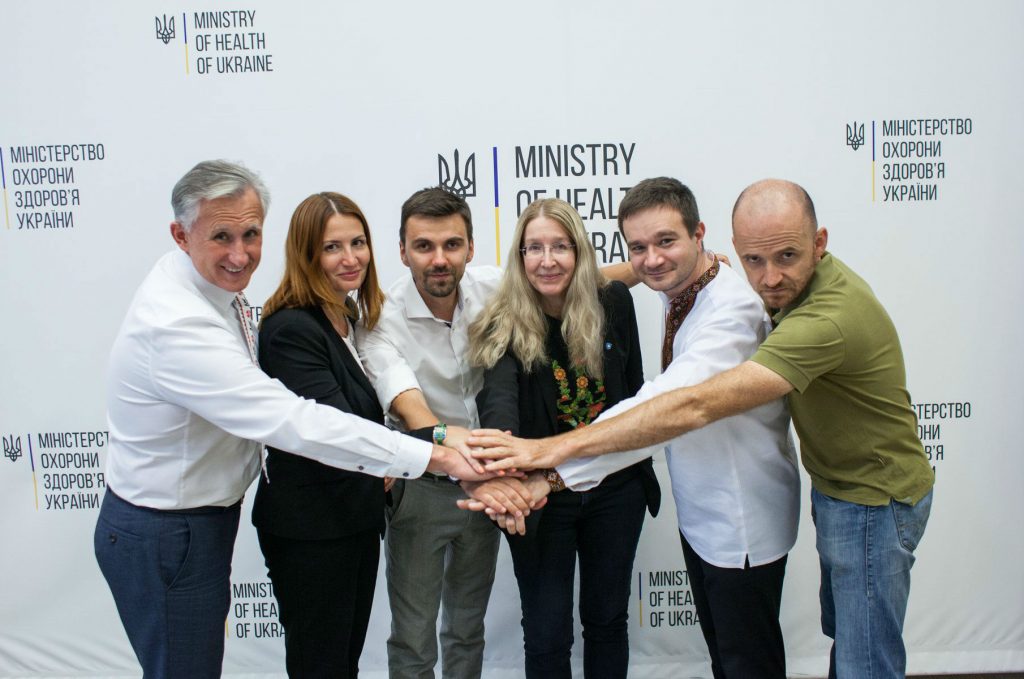
Ulana Suprun just wants to get back to work turning around Ukraine’s feeble healthcare system. But she can’t focus on reforms now: the fifty-six-year-old radiologist turned health minister of Ukraine is under attack. Worst of all, she’s not sure who is behind it.
On February 5, Kyiv’s Regional Administrative Court ruled to suspend Suprun’s authority to make any decisions or sign any documents as the acting minister of health. Suprun remains the first deputy minister of health.
Lives depend on her signature.
In the balance is $22.6 million in medicine, vaccines, and medical devices waiting to be delivered to hospitals; forty-four Ukrainians waiting for permission to receive medical treatment abroad; and the Ministry of Health’s planning for the next three years, which is currently stuck.
It’s wholly unclear who stands behind the court’s decision or why. Most likely, someone doesn’t like the reforms Suprun has initiated. Among other things, she has taken on the “pharma mafia,” procuring some prescription drugs through international companies and saving the state millions; in the process, she cut out corrupt Ukrainian middlemen. They or their political allies could now be issuing retribution.
On February 11, Suprun is going to court. She’s hoping that the judge will give back her right to act as the acting minister of health. But even if she succeeds, Suprun is not out of the woods.
On February 15, she returns to court to defend herself against charges that she’s not fit for office. Sponsored by Radical Party MP Ihor Mosiychuk, the case against her is threefold: first, it challenges the notion of acting minister. Second, it claims that she wasn’t properly appointed. Third, it claims that she’s not a Ukrainian citizen.
The claims are bogus, Suprun says. There have been plenty of acting ministers in Ukraine’s history, she points out. Additionally, the same court ruled twice that she was properly appointed, and she has held Ukrainian citizenship since 2015.
But the court that decides Suprun’s future has a “pay to play” reputation, the judge has made politically motivated decisions in the past, and there are reasons to be deeply concerned.
Suprun says she’s not just concerned about herself; she worries about the dangerous precedent the case might set. “It’s an egregious attempt by the judiciary system to control the executive branch of government,” she said in a February 7 phone interview.
“I’m concerned that the courts are making such outrageous decisions that they could truly do damage to the entire process of governance in Ukraine,” she said.
Suprun’s removal would also mean an end to her efforts to change the system.
“Health care reform will stop. No one else is capable of what we’ve done,” she said. And that’s exactly what her opponents want, she points out.
Suprun is no stranger to controversy. She has been harassed personally and professionally in print, on television, and in person since she took the position. The anti-reform political parties in parliament, including Fatherland, the Radical Party, and Opposition Bloc, can’t stand her policies.
Just this week, one of the leading presidential candidates, Yulia Tymoshenko, claimed that the United States sent Suprun to Ukraine to experiment on Ukrainians. Tymoshenko has also said that Suprun should be put in jail.
Suprun isn’t sure who put Mosiychuk, the Radical Party MP, up to challenge her in court. Rumors in Kyiv abound. Journalist Kateryna Venzhyk has said that she’s heard three theories. The first is that Suprun has the highest negative rating among ministers, since her health reforms have been controversial and her critics have been highly vocal, and President Petro Poroshenko wanted someone else to get rid of Suprun before the presidential election on March 31.
The second theory is that removing her might improve the Radical Party’s numbers and cut into Tymoshenko’s support, thereby benefitting Poroshenko, who faces a tough reelection fight. The final theory is that it’s all about money and reestablishing the financial flows from pharmaceutical drugs.
The motives are still unclear, but one thing has changed this week: Ukraine’s elite are finally paying attention. Whether or not they’re truly behind her, Suprun has received verbal support from the president, prime minister, and speaker of parliament, as well as numerous civil society groups and primary care physicians.
If Suprun loses the case on February 15, she can appeal. But there’s a more elegant solution.
“The best solution would be to appoint me as minister of health,” she said. But Prime Minister Volodymyr Groisman isn’t sure he has the votes.
Still, Suprun is a fighter; even though the knives are out for her, she’s resolute and ultimately focused on what this means for the Ukrainian people.
“I don’t want people to suffer because of some political decisions being made or some irresponsible court decision being made,” she said.
Melinda Haring is the editor of the UkraineAlert blog and a senior fellow at the Foreign Policy Research Institute. She tweets @melindaharing.
Image: Dr. Ulana Suprun (center) is the acting minister of health of Ukraine. Credit: MOH Ukraine
